Sample
Chapter 1: India, 330 BCE
Leeta
“Stop!” I called, as if they were going to listen. They didn’t. I started after them. Closer, closing, I ran into their dust. In a single motion, they swooped up stones and threw.
“Don’t!” I cried, too late.
Their stones pounded the earth, frightening the monkeys that had almost reached the nearest mango tree.
“Patish!” I said, reaching his side as he came to a halt.
He ignored me, his twin sister, and turned to face Satu, his best friend. Wide grins spread across their faces.
Arriving behind me, Asten, Tomay, Liddu and Sujas broke into a victory chant. “Pa-tish! Sa-tu!”
“Did you see those monkeys scatter?” cried Tomay. “Pa-tish! Sa-tu!”
Patish and Satu glowed, heroes of the moment.
“Where are the monkeys?” said Seera, our younger sister, arriving at the scene. “I want to see them too!” She balanced on the tips of her toes trying to look over the tall grasses.
“They got away,” I answered, loud enough for the boys to hear. They didn’t seem to care. “Come, Seera, let’s go.”
I beckoned her towards the Well. She held out her hand.
In our village, Shaktin, the Well was a place of worship. Its water gave us life, and just being near water felt cool in this heat. Every afternoon, half the village came out here and stood around the Well chatting, waiting their turn for water. Even the stray dogs that survived on our scraps loved lying in the dirt around the Well, waiting for a drink. People would wash themselves on the stone slabs surrounding it, though no one dared to at the moment. The rains were so late, and the water was so low. What if it ran out? What would we do then?
The words of Tanu the trader had haunted me since his visit a few days ago.
“Water is life,” he’d said, giving his camels a generous drink. “That’s why Prince Ambhika will never let Taxila end up like Harappa, ruined when their water dried up. You’ve all heard the rumours, haven’t you? War. The King of Paurava is threatening a war over the water of the river Jhelum.”
The mere mention of war made me shudder. War was what killed Father. Since Tanu’s warning, I couldn’t decide which was the most terrifying: the possibility of another war, or our kingdom dying from thirst.
I took Seera’s outstretched hand and started to walk when the buzzing of the evening cicadas stopped. They were silent, all of them, not only the ones near us. It was eerie.
“What is it?” I murmured.
Then they started again, but their hum was different. Was something troubling them? No one else seemed to notice except for one of the strays – the skinny one with a missing a front leg. Limpy. He raised his head, tilting it to one side. His ears stood tall, listening.
“Alright,” I said to the boys. “You’ve frightened those monkeys away, so let’s get back to the Well, or there’ll be no water to cook with.”
“You go, Leeta,” said Liddu. “You mind our place in the queue. We need to stay. The monkeys are after our mangoes.”
Asten, Tomay and Sujas all nodded their agreement. Patish awkwardly said nothing. I turned my eyes to the ground. I didn’t mean to sound like Mother.
“But what about the bananas?” added Sujas, wanting to go on with the argument. “There’s some of them ripening too.”
Satu stepped in. “They’re gone, but we’ll be ready for them tomorrow,” he said, turning to walk back.
He always came to Patish’s aid. I watched them as they glanced at each other.
“Good. Come, Seera, let’s go…” I looked down, expecting her to be there. She wasn’t.
“Over there – a monkey!” Seera’s eyes shone. She loved finding things that were hidden to others. It was almost as if they called out to her in words only she could hear.
I edged over to the clearing. Seera was right – there lay the shape of a monkey. It was still. The boys, just within earshot, sprung back and scattered to pick up stones.
“We must have hit it!” cried Liddu, acting as if he had been right to want to stay. “Let’s finish it off just in case…”
Seera and I joined hands and raced to block their target.
“Don’t hurt it anymore!” I said.
“Get out of the way!” Tomay demanded.
“Move, Leeta!” added Liddu.
I looked to Patish, but he stood motionless. His loyalty to his fellow hunters was confusing. Where was the brother I knew? Our platted Rakhi bracelets were around his wrist, the ones Seera and I had tied at the last Festival of Colours in exchange for his blessings and pledge of protection for life. I touched my own hemp string bracelet and felt the tiny dangling Earthmother figurine he had carved from sandalwood. Seera saw me and copied, fingering the bracelet and the figurine on her right wrist.
Patish watched. He knew us well enough to guess what we were thinking, but it made no difference. How easily his loyalty to his sisters was forgotten when his friends were around! Seera and I said nothing. We didn’t have to.
Even though such raids by monkeys were common, Patish and his friends had never killed one before. But they were older, now. Most of them had seen fourteen summers, except for Liddu, the youngest, who was only twelve. Their arms were stronger and their aims better.
Tomay stepped forward. “You heard us, Leeta, move! Who do you think you are, anyway? Some Earthmother goddess, protector of all wild animals or something?”
I eyed Patish. Would he protect me from this insult?
I decided not to wait. “Your mocking words have no power, Tomay. The Earth is my mother as she is yours. I can stand wherever I want, just as you can.”
As Patish opened his mouth, a distant rumbling echoed from the valley, and we turned towards it. Limpy stopped and growled, his tail down between his legs. With darkness setting in, we couldn’t see much.
“Distant thunder?” Tomay guessed.
“No clouds,” Satu said. “Sounds more like an earthquake!”
“But the earth’s not shaking,” said Sujas.
Patish gazed intently, his forehead wrinkling as if that might help him see. “Let’s get going,” he said.
No one argued, and handfuls of stones hit the earth as the boys started walking back.
Ignoring them, Seera and I darted toward the monkey.
“What are you doing?” Patish called out. “Come on!” There was a seriousness in his voice, the sound of responsibility he used whenever
Mother was involved. He might let his sisters down, but never Mother.
“We’re coming, but we can’t just leave the monkey to die,” I called back, hoping it wasn’t already dead.
“It could bite,” said Seera, looking to me for reassurance.
“Those boys!” I said, bending down. “Poor little thing.”
“Leeta… I believe in you,” she said in her cute little-sister-way. “You may not be an Earthmother, but you caught up with them before. You are an Earthrunner!”
In the fading light, I could barely make out a bloody gash on the monkey’s head, just above its left eye. I tore a narrow strip of cloth from the bottom of my dress and carefully lifted its head to wrap the wound.
“Is it still alive?” asked Seera. “Can we take it home?”
“Can’t you hear that rumbling?” Patish said, arriving. “Hurry up! Mother will be worrying, and here you are talking about bringing a dead monkey home, as if we’d eat it!”
He was joking, but I could see the worried look on his face. He looked back at his friends who had already reached the huts. They were barely visible from the smoke of dung patties smouldering inside fireplaces.
“Come on, Seera,” he said, half pleading, half ordering, as he held out his hand.
Seera held both her arms up. “Uppa?”
Patish gave her a silent nod. She smiled, climbed up onto a log, and jumped onto his back. This was the Patish I knew, the one I’d always known.
I shook my head. “You always give in… she’ll always be your little baby,” I teased, remembering the comment Mother had made when I complained about it once: “That’s love.”
“Quickly,” Patish insisted, “Let’s go.”
As he spoke, the monkey opened its eyes. It looked right at me then scampered off, its white headband visible until it disappeared amongst the grasses.
“You saved it – happy now?” said Patish. “Come on!”
We hastened back towards the Well. The last of the boys had left carrying pots of water on their shoulders.
Patish put Seera down and lowered the pail into the water. “Never seen it so low,” he said. “Go on, walk ahead.” He filled the water pot he’d left there earlier, hauled it up onto his shoulder and quickly caught up to us.
It was then that I felt the earth pounding beneath my feet. For a moment, I thought it was his footsteps, heavy with the weight of the water, so I swung around to help him. Patish was staring at something.
“Run, Leeta!” he yelled. “Seera, run, RUN!”



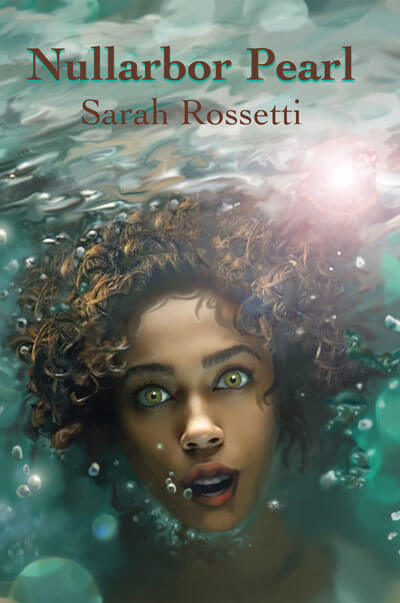
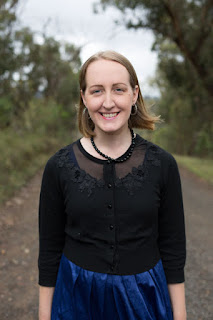
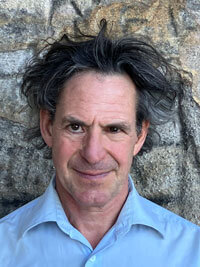
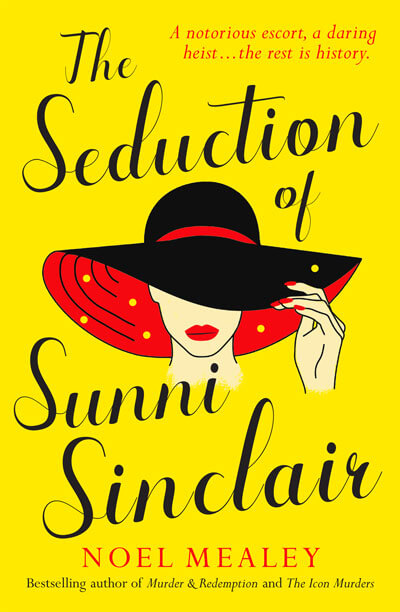
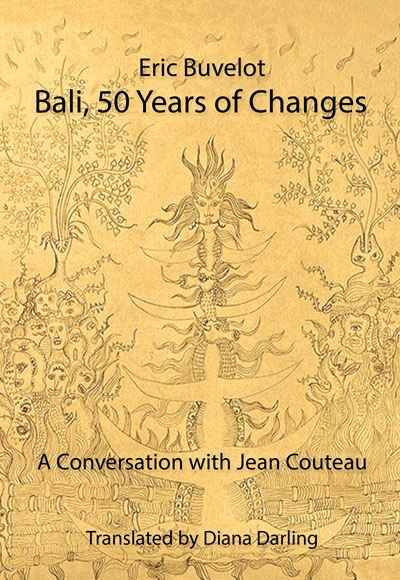
















IP (Interactive Publications Pty Ltd)
The heroic coming of age journeys of Leeta and Patish are flawlessly interwoven into an exciting, page-turning historical epic. As humanity faces the challenges caused by its impact on the earth, these determined young people show us what we can all do with enlightened responses to resolve conflicts, violence and war. Congratulations!
– Irina Dunn, Director of the Australian Writers’ Network
IP (Interactive Publications Pty Ltd)
I loved it! I loved the story and the wholesome messages of courage, love, peace, determination, and family woven throughout the book. I am a very visual person, and the beautifully scripted story illustrated itself perfectly to me. I had a visual movie going on in my head whilst reading. It was a joy.
– Kathy Clarke, Art Teacher
IP (Interactive Publications Pty Ltd)
Simone and Constantine Pakavakis’ Earthrunner is a story about running on the thinnest of hopes for peace. It does not shy away from the attractions of war. Nevertheless, in clear, urgent prose this novel shows us how war can be arrested by the power of a people’s love.
– Dr. Josephine Scicluna, poet, fiction writer and academic